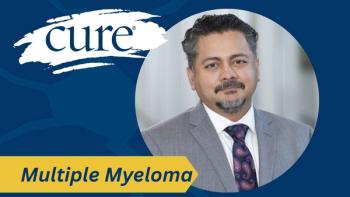This morning on MSNBC's Morning Joe, Michael Bloomberg, mayor of New York City, and Cory Booker, mayor of Newark, New Jersey, were interviewed about the National Conference on Volunteering and Service taking place in New York City over the next few days. This annual conference is billed as the "world's largest gathering of volunteer and service leaders from the nonprofit, government, and corporate sectors" and is sponsored by the Points of Light Institute and the Corporation for National and Community Service.In hearing Bloomberg and Booker talk about service and volunteering, I recalled the many cancer volunteers I have encountered in both my professional and personal life. I thought of Mac and Lisa Tichenor who, after their son died of osteosarcoma, started the What Would Willie Want Foundation to fund and encourage research in sarcoma. I thought of the many oncology nurses I have interviewed who spent time outside of their jobs to lead a cancer support group or to organize a cancer fundraiser. I thought of the hundreds of volunteers it takes to make a Race for the Cure run smoothly. I thought of my friend, Jan, who volunteers at a hospital to keep people company while they are receiving chemotherapy. And I thought of the many volunteers at hospitals, clinics, and hospice who helped my mom during her cancer journey. During the interview, Booker said this, "We have to understand our generation. We're not being called to storm the beaches in Normandy or Midway; we are not being called to join together for the civil rights movement. We are being called to understand that we still in America drink deeply from wells of freedom we did not dig. We have an obligation to serve. Democracy is not a spectator sport. All those who want a great America have to understand they have a role to play. You can't talk about schools, and you can't talk about crime without first realizing, I can do something for mentoring a young person, from getting involved in neighborhood groups to do something about it."Whether or not cancer has touched your life, you can "do something about it" by volunteering or by giving. For a disease that can be devastating and scary, giving back is one way to feel empowered over the helplessness and fear. As Booker said, I think we all have a "role to play" in changing cancer in our communities and during our lifetimes. And there are so many opportunities--from raising funds, running a 5K or helping a 5K run, to volunteering by helping patients at hospitals or caring for a friend who is ill. During the interview, Booker pointed out the number of hours we spend watching television and what an impact it would make to devote even some of those hours to volunteering or service. Think of the transformation we could create by dedicating time to someone else; it could be all the difference in the life of a cancer patient.
